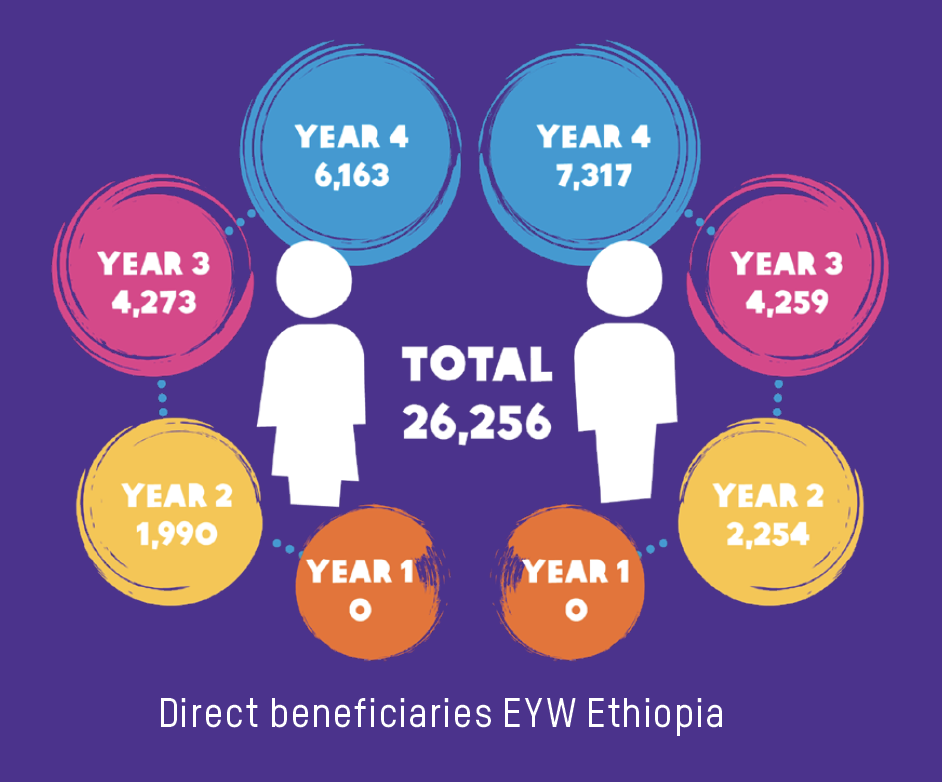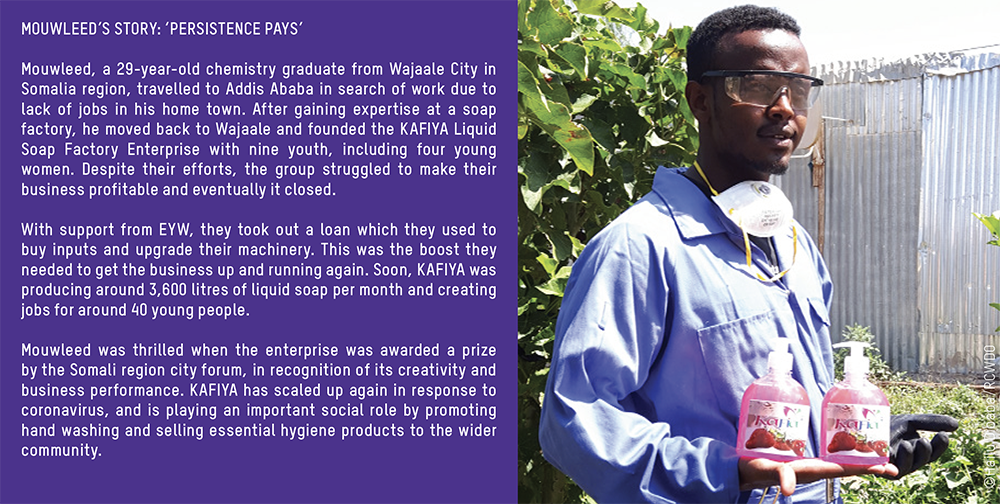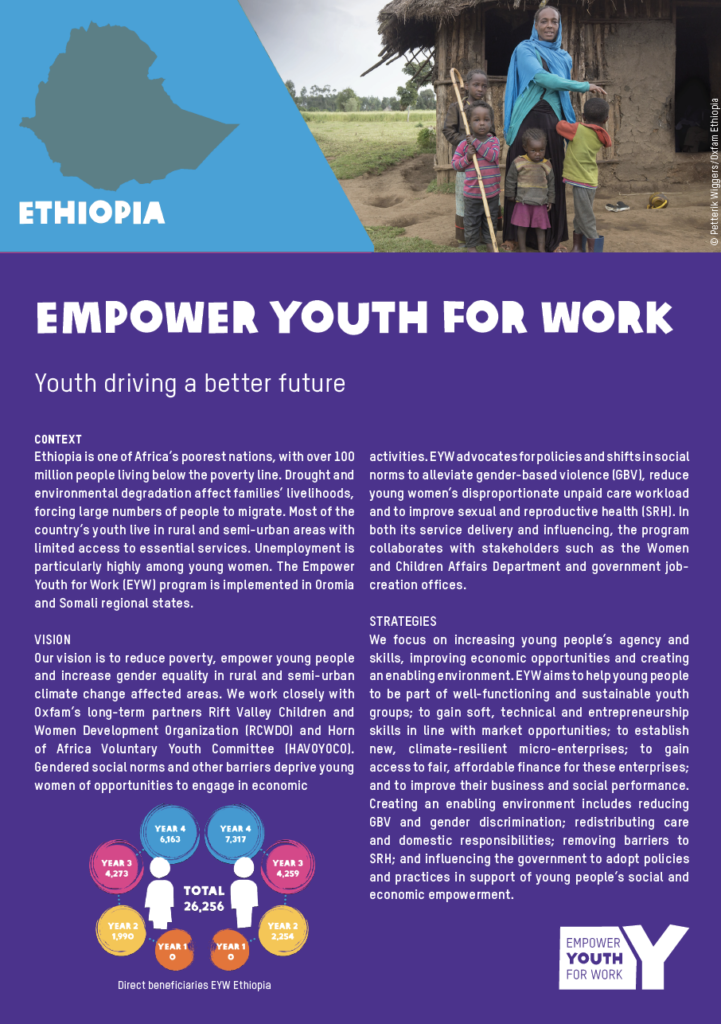Ethiopia year 4 overview
The Ethiopia Empower Youth for Work program continued to emphasize vocational and life-skills training in year 4, and to improve access to loans for young entrepreneurs and start-ups. Innovations included the piloting of a successful mobile Business Development Support service to reach youth in isolated rural areas, and young people used international campaign days and ‘Community Conversations’ to tackle gender inequality.
Key achievements - year 4
The program’s key achievements in year 4 include reaching 7,127 youth by providing vocational and life skills training. During the same period the program identified, organized and strengthened 3,036 youth groups and enabled 1,198 youth enterprises to access a Loan Guarantee Fund (LGF), and the Government revolving fund scheme. Three life-skills training modules were developed in English and the two program target regions’ local languages (Somali and Oromia); and 7 vocational and agricultural modules were developed in English. Overall, by the end of year 4 the EYW program in Ethiopia had reached 13,480 youth, more than 40% of whom are female.
To improve the business and social performance of youth businesses, a demand-driven mobile Business Development Support (BDS) innovation pilot was designed, piloted, tested and scaled up. EYW Ethiopia envisions that, following the successful pilot, the mobile BDS will expand to other youth groups beyond the program’s target district and villages, and will be adopted by government offices.
To create an enabling environment for young people, EYW’s weekly radio show hosted a ‘16 Days of Activism’ poetry competition to help raise awareness on GBV. Over 2,800 young people took part in bi-monthly ‘Community Conversations’ which addressed issues of GBV, SRH and unpaid care work.
EYW used international days such as the 16 Days of Activism and International Youth Day to mobilize communities and increase their awareness on the negative impacts of GBV, SRH and women’s disproportionate responsibility for unpaid care work.

Innovation
Innovative approaches taken by the program in year 4 included: organizing training sessions and developing modules in local languages to help reach more young people; revising the Community Conversation Facilitator Guide to better fit the context and increase impact; and using international day celebrations as discussion platforms where young people could directly voice their concerns and raise their issues with decision makers and other parties, and call for change.

Risks and challenges
The main challenges and risks in year 4 related to misconceptions regarding the LGF, young people’s lack of commitment or business experience, young people’s lack of financial capacity to sustain their business, and inadequate stakeholder support or commitment. The outbreak of Covid-19 and the limitations imposed by the government on gatherings of more than four people forced the EYW team to postpone training and youth-led initiatives.
The EYW program in Ethiopia is addressing these challenges by organizing platforms for youth, in discussion with implementing partners, on the regulations regarding the LGF; and managing a youth-led coronavirus response that takes the restrictions into consideration.
The team will provide BDS to youth business groups engaged in making products that can be used for Covid-19 prevention, such as liquid soap, pharmaceuticals, face masks etc., and will provide sanitation and hygiene materials for vulnerable target youth.
Year 4 overview in PDF:

